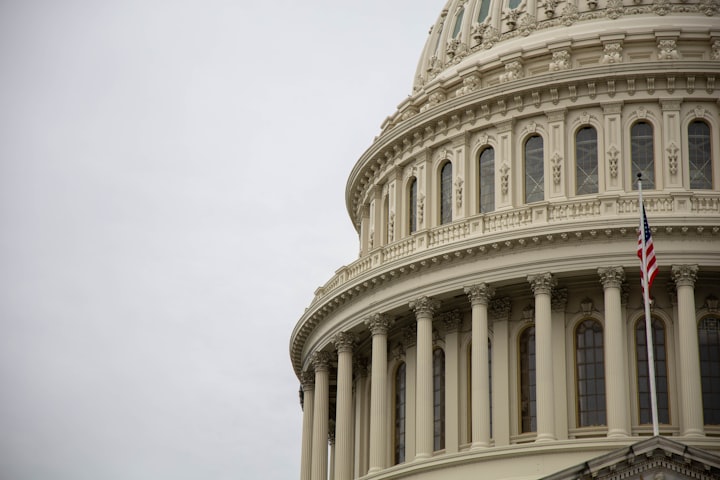Landmark Legislature Should Spark Controversy and Debate
Women's rights have never been more in danger than they are today.

HB454 is a bill newly introduced in the Alabama Legislature, called the Equal Protection Act. The purpose of the bill is to make changes to existing laws regarding abortion and the legal protection of unborn children.
Here is a simplified summary of the bill:
The bill allows the defense of duress (being forced to do something against one's will) in murder cases involving an unborn child, but only if the defendant is the child's mother.
The bill expands the definition of "person" in the criminal code to include an unborn child from the moment of fertilization. This means that the law would consider an unborn child to have the same legal rights and protections as a person who is born.
Currently, certain medical care or medication resulting in the death or injury of an unborn child is not subject to prosecution. The bill maintains this protection but adds a requirement that all other reasonable alternatives to medical care must have been exhausted before such protection applies.
The bill repeals existing provisions that prohibit the prosecution of homicide or assault following any abortion and the prosecution of a woman for the homicide or assault of her unborn child. This means that such cases can be prosecuted under the new law.
Prosecutions of homicide or assault involving an unborn child would be treated the same as prosecutions of homicide or assault against a person who is born.
The bill also addresses a constitutional provision in Alabama that requires a 2/3 vote or approval by affected entities for new laws that would result in increased local expenditure. The bill states that it falls within specified exceptions and therefore does not require additional approval.
The Equal Protection Act aims to provide legal protection to unborn children by allowing the defense of duress in certain murder cases, expanding the definition of "person" to include unborn children, and treating prosecutions involving unborn children in a similar way as prosecutions involving born individuals.
Backlash and Concerns: Alabama's New Legislation Raises Alarming Questions about Women's Rights

As Alabama's proposed Equal Protection Act aims to provide legal protection to unborn children, it has also ignited a heated debate, with critics arguing that the bill represents a significant setback for women's rights. Advocates for women's reproductive autonomy and equality worry that this legislation could undermine the hard-fought gains made in recent years.
One of the most contentious aspects of the bill is the provision allowing the defense of duress for murder charges, exclusively when the defendant is the child's mother. While proponents argue that this provision acknowledges the complexities and unique circumstances pregnant women may face, opponents argue that it further restricts women's agency and decision-making power.
Critics argue that by expanding the definition of "person" to include unborn children from the moment of fertilization, the bill lays the groundwork for potential restrictions on reproductive rights. Concerns are raised about how this expanded definition may be leveraged to challenge existing legal protections, such as access to safe and legal abortion procedures.
Additionally, the repeal of provisions that previously prohibited the prosecution of homicide or assault following an abortion or against a woman in relation to her unborn child raises alarms among women's rights advocates. They argue that removing these safeguards erodes the principle that women should have control over their reproductive choices and may open the door to criminalizing women who seek or undergo abortions.
Furthermore, critics emphasize that treating prosecutions of homicide or assault involving unborn children the same as those involving born individuals fails to recognize the fundamental differences between a woman's body and an independently existing person. They argue that such measures perpetuate the notion that the rights of the unborn should supersede those of pregnant women, thereby undermining the principles of bodily autonomy and self-determination.
Opponents of the bill highlight the potential consequences for women's access to healthcare, as it introduces legal uncertainty around medical care and treatment during pregnancy. The concern is that physicians may become hesitant to provide necessary medical interventions for fear of facing criminal prosecution, even in cases where the health and life of the pregnant woman are at risk.
While proponents of Alabama's Equal Protection Act argue that it seeks to protect the rights of unborn children, critics contend that it significantly rolls back women's rights and reproductive autonomy. The bill's provisions pertaining to duress defense, expanded definitions, and prosecution implications raise profound concerns about the long-term impact on women's rights and access to comprehensive healthcare. The battle over these issues is expected to intensify as advocates on both sides continue to voice their opinions and strive to shape the future of reproductive rights in Alabama.
Thanks for reading!
If you have a story you think I should cover, let me know about it. Send an email to [email protected]
About the Creator
Ashleigh Nicole
I'm an Aquarius, which basically means I'm naturally creative and innovative with a dash of weirdo.
As a former executive chef with a culinary degree and over five years freelance writing experience, I craft narratives to inspire and engage.






Comments
There are no comments for this story
Be the first to respond and start the conversation.